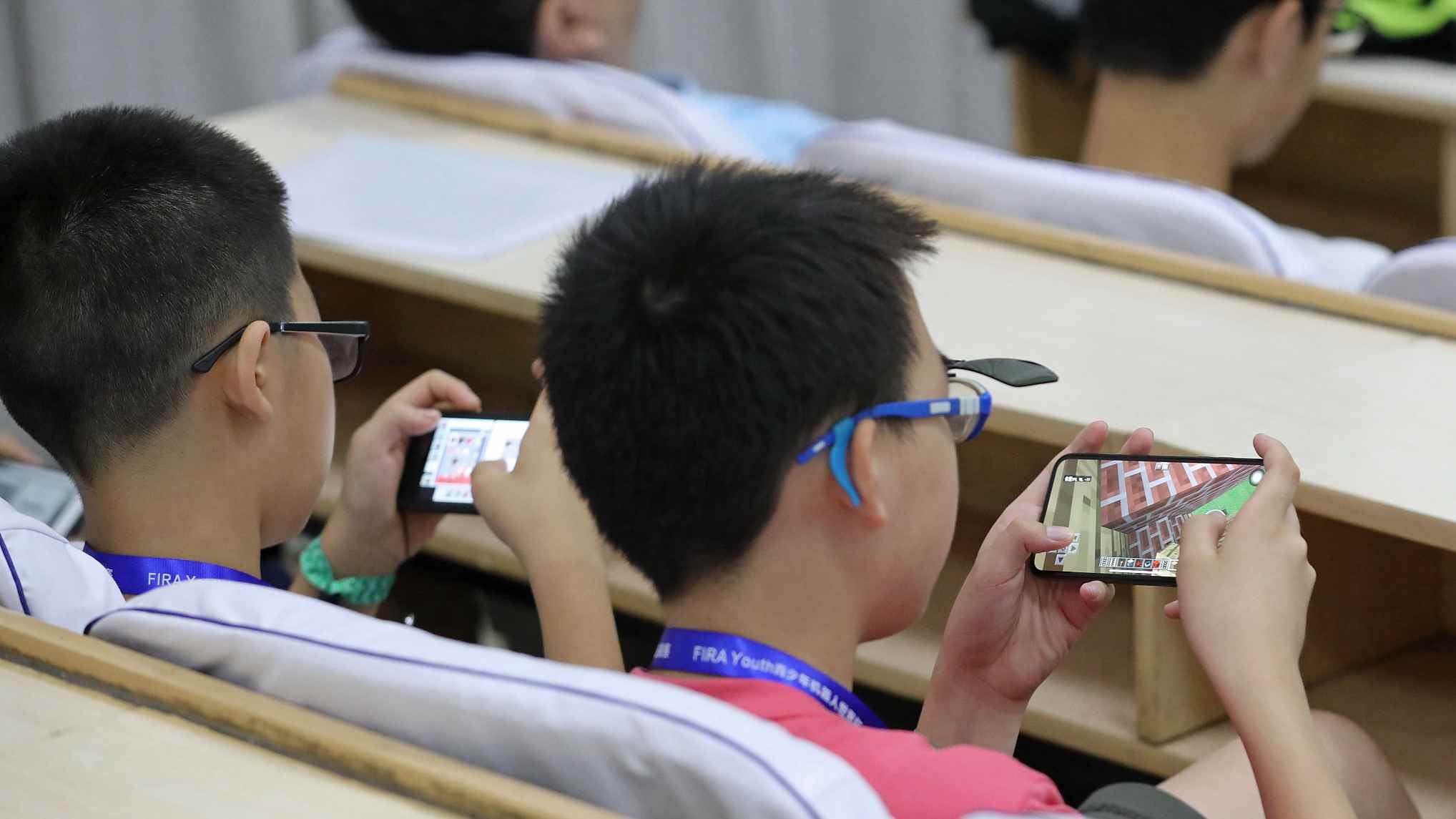
China
23:01, 24-Nov-2018
Xiangtan in central China issues citywide ban on smartphone use at school
Updated
22:14, 27-Nov-2018
Cui Zhaoqian

Students in a city in central China will no longer be allowed to bring their smartphones and smart devices to school after local education authorities issued a new regulation earlier this month.
The rules by the education bureau in the city of Xiangtan, Hunan Province, also called on primary and secondary school students to use their Internet-connected devices no more than 30 minutes every day, while turning education institutions smartphone-free venues.

The document issued by the Xiangtan Education Bureau bars students from bringing their smartphones and smart devices to school. /Weibo Photo
The document issued by the Xiangtan Education Bureau bars students from bringing their smartphones and smart devices to school. /Weibo Photo
Phones with the basic function of making calls as well as watches are allowed during recess for students to stay in touch with their parents only if they file an application with the school.
Parents should also control the time their children spend on electronic devices at home, teach them to stay away from violent and pornographic content, which can easily be accessed through various apps and click baits, according to the official document issued on November 7.

Students use their smartphones while walking in a mall in Beijing, on January 26, 2018. /VCG Photo
Students use their smartphones while walking in a mall in Beijing, on January 26, 2018. /VCG Photo
Some 68.1 percent of primary and secondary school students in China own a smartphone, according to a report cited by China Youth Daily last month.
From reading news and chatting with friends, to ordering food, buying clothes, playing games and hailing cabs, life in China has been made more convenient through smartphones. But that comes with a sense of attachment to the devices among children, constant distraction for students and the risk of premature exposure to age-inappropriate material.
The ban aims to curb smartphone addiction and ensure students are focusing in class.
As well as forbidding students from bringing smart devices to class, the education authorities also called on parents to set good examples for their children in terms of phone usage habits, such as not spending excessive time on their screens.
The regulation does not ban teachers from using digital teaching aids but limits the frequency of giving assignments on instant messaging apps like WeChat and QQ.

A student watches an online course on a smartphone in Kunming, Yunnan Province, February 28, 2017. /VCG Photo
A student watches an online course on a smartphone in Kunming, Yunnan Province, February 28, 2017. /VCG Photo
The new rules were well received on China's social media as many netizens expressed belief that children can easily fall in the trap of digital addiction, damaging their health and school performance.
"The mere presence of one's smartphone consumes attention even when it's not being checked," said one user on China's Twitter-like platform Weibo.
However, people who disagreed with the ban held the opinion that smartphones serve important functions in the digital era. One part of a good education for students today is to teach them how to wisely use technology to learn, communicate, and work with ideas.
Combating screen addition extends beyond China. France introduced a new law in September prohibiting students aged three to 15 from using mobile phones at school.

SITEMAP
Copyright © 2018 CGTN. Beijing ICP prepared NO.16065310-3
Copyright © 2018 CGTN. Beijing ICP prepared NO.16065310-3